Category: Blogs
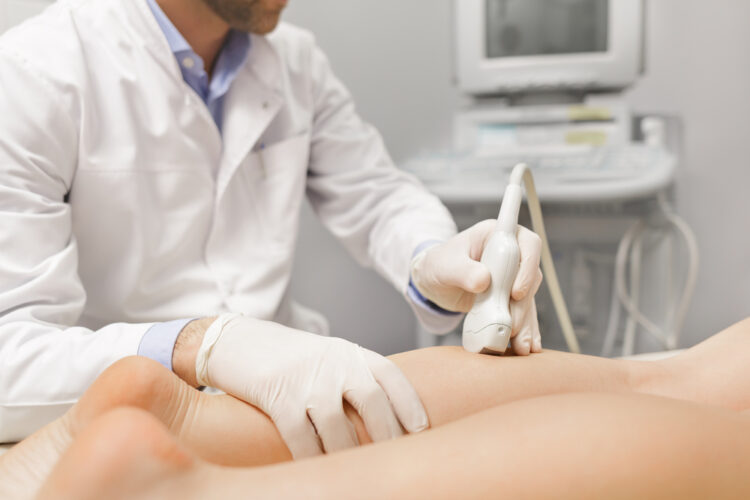
What Kind of Doctor Treats Varicose Veins?
When you have varicose veins and are thinking about treatment, one of your first questions will probably be what kind of doctor treats varicose veins. This is important to know as there are plenty of choices to consider. However, when it comes to the best varicose vein doctor, you’ll want to choose a vascular surgeon. […]
Read more »
Are Varicose Veins Genetic or Hereditary?
Your grandma gave the best hugs and always made the most delicious apple pie. She had so many good qualities you remember about her, but you might also remember the purple and blue varicose veins that covered her legs. A question on your mind might be, if your grandmother and mother had varicose veins, would […]
Read more »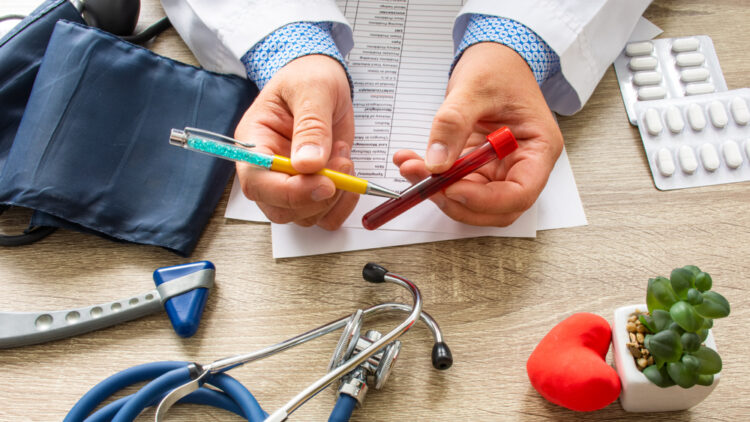
Can Varicose Veins Cause Blood Clots?
| Leave a CommentThe flow of blood throughout the body is an essential and delicate system responsible for nourishing tissues from head to toe. Any threat to regular blood flow has the potential to disrupt normal activities, cause pain, or create critical health issues. While varicose veins are enlarged, twisted veins resulting from malfunctioning vein valves, blood clots […]
Read more »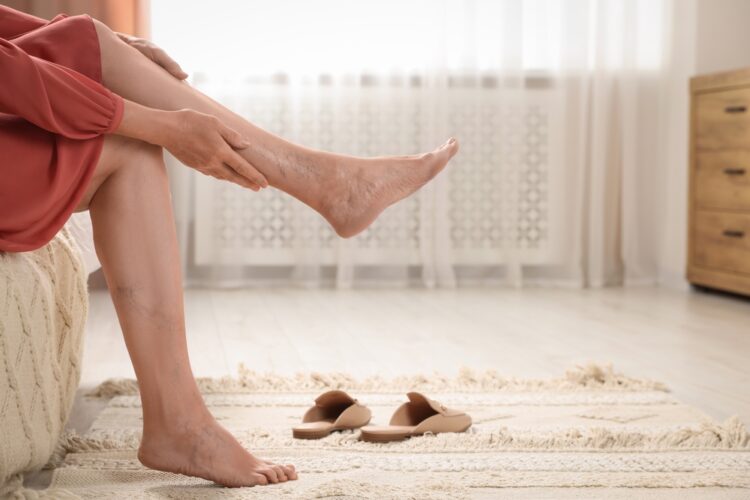
What Are the Stages Of Varicose Veins and Vein Disease?
Varicose veins are known as being unsightly, often bulging veins that may be blue or purple, and are often located in the lower extremities. While sometimes they’re just a cosmetic complaint, varicose veins can become uncomfortable and even painful. For some, they can eventually have more serious consequences that require medical attention. How do varicose […]
Read more »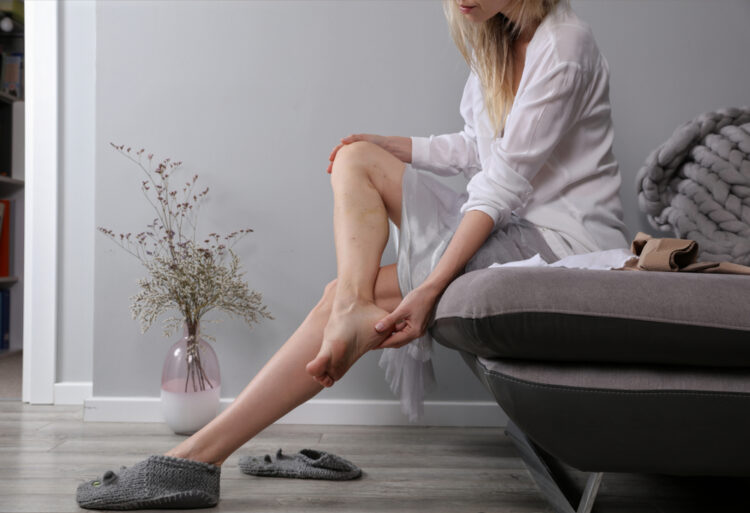
How to Prevent Varicose Veins: Tips and Expectations
While you can’t change the genetic factors that predispose you to have varicose veins, there are many actions you can take that can help prevent existing varicose veins from getting worse. To motivate you, the same lifestyle habits that can help prevent varicose veins will improve your health in a variety of other ways. What […]
Read more »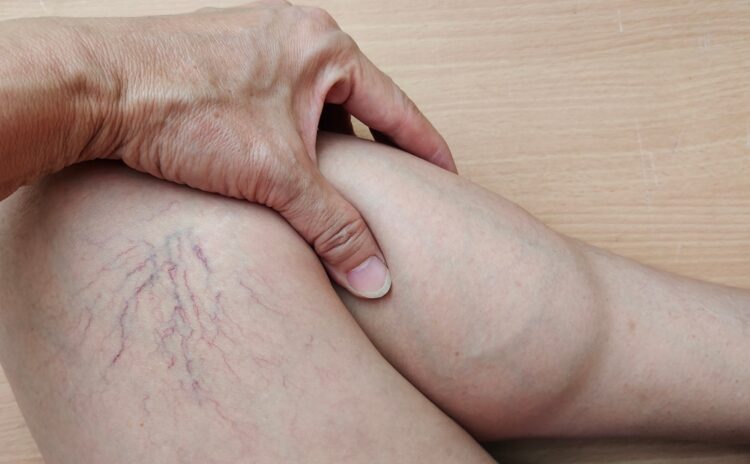
Do Spider Veins Go Away on Their Own?
If you have purple, red, or blue spider veins on your legs or other parts of your body, you may hope they go away on their own. But is it possible for them to heal over time? Can spider veins go away on their own? Or do you need treatment? There are some ways to […]
Read more »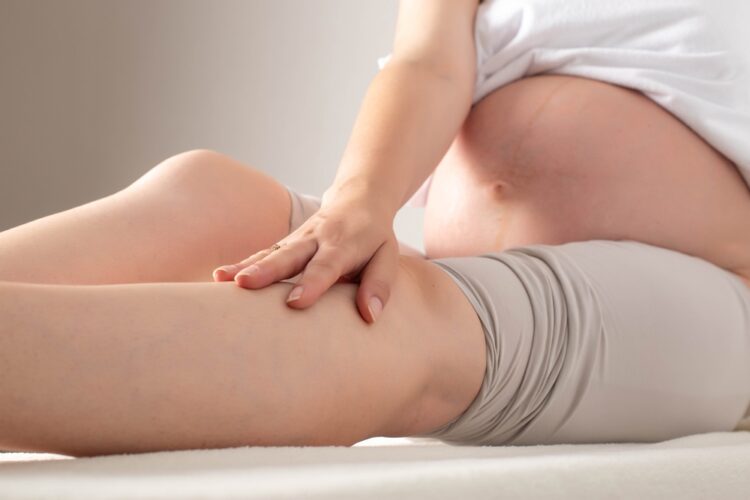
Varicose Veins During Pregnancy: What to Know
Varicose veins are common during pregnancy because of increased pressure on the circulatory system and poor blood flow. Unlike other types of vein conditions, varicose veins during pregnancy tend to resolve on their own within a few weeks to months after delivery. If you are currently struggling with varicose veins or want to know how […]
Read more »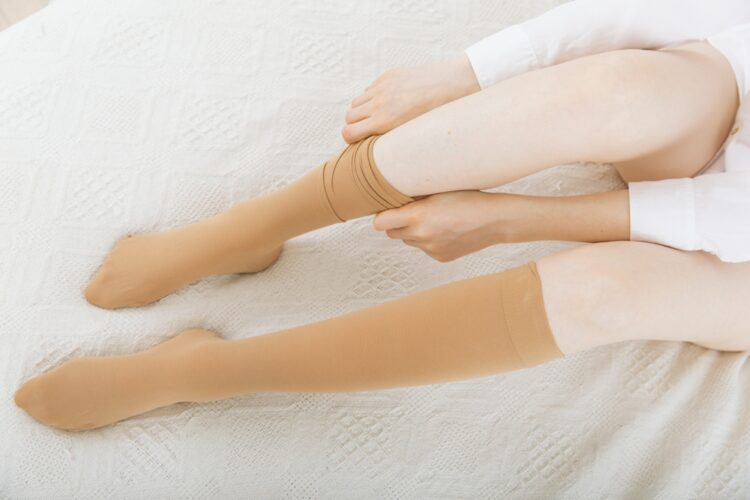
How Long Should You Wear Compression Socks?
Compression socks are used in compression therapy, a non-invasive treatment that helps manage the symptoms of poor blood circulation in the legs. Compression therapy uses snug-fitting socks or stockings to put pressure on the legs to improve blood flow. This is often a recommended first step in managing uncomfortable symptoms such as swelling, heaviness, or […]
Read more »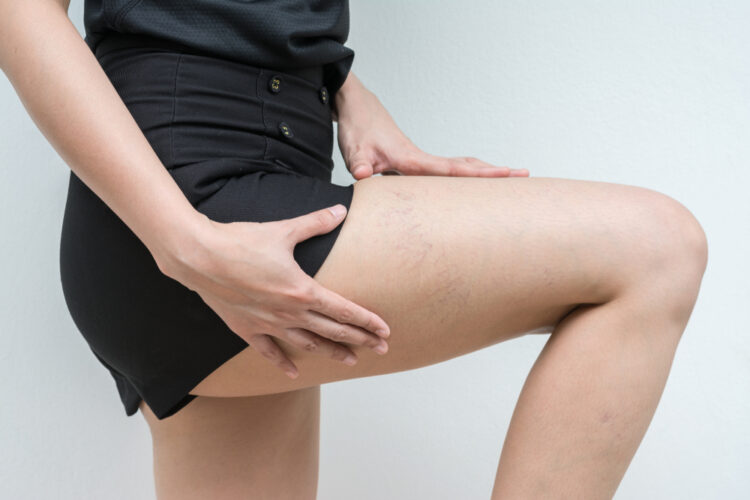
What Causes Varicose Veins?
| Leave a CommentVaricose veins can be uncomfortable, unsightly, and even painful. They can make it harder to sit or stand for prolonged periods, travel, or engage in certain activities that exacerbate them. But what is the cause of varicose veins? Many factors are involved, and if you’re struggling with them, you’re not alone. Understanding what causes varicose […]
Read more »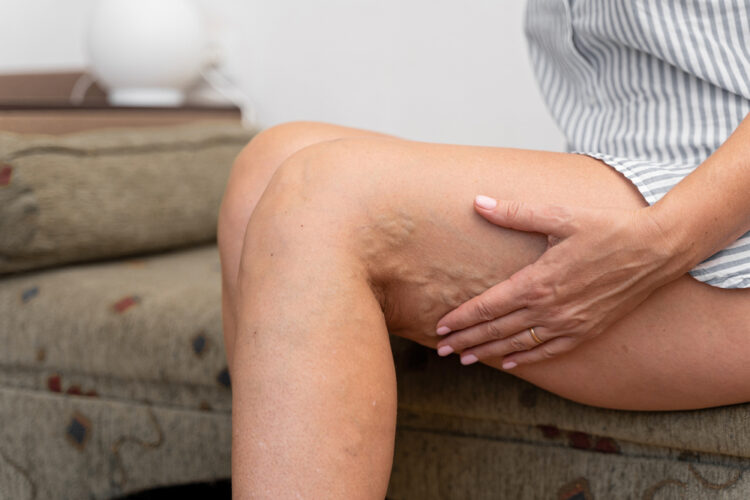
Are Varicose Veins Dangerous or Harmful?
Varicose veins are a common health problem that affects more than half of the population[1]. They’re predominantly a cosmetic issue, but symptoms of varicose veins can include pain, swelling, and discomfort for some people. So, are uncomfortable or itchy varicose veins dangerous? While not inherently dangerous, varicose veins can lead to complications like blood clots, […]
Read more »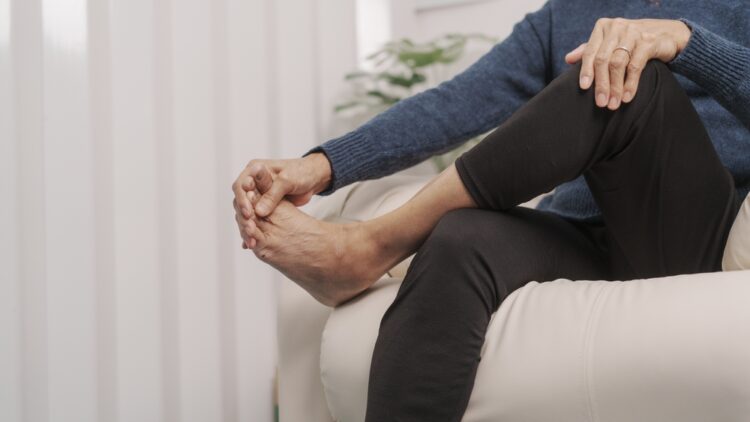
Varicose Veins Ankle Swelling: Causes and Treatment
After spending some time on your feet, you look down and notice your ankles feel uncomfortable and appear significantly bigger than they did this morning. What’s going on? If you have varicose veins anywhere on your legs, this can be a common cause of ankle vein swelling. What are the underlying reasons for varicose vein […]
Read more »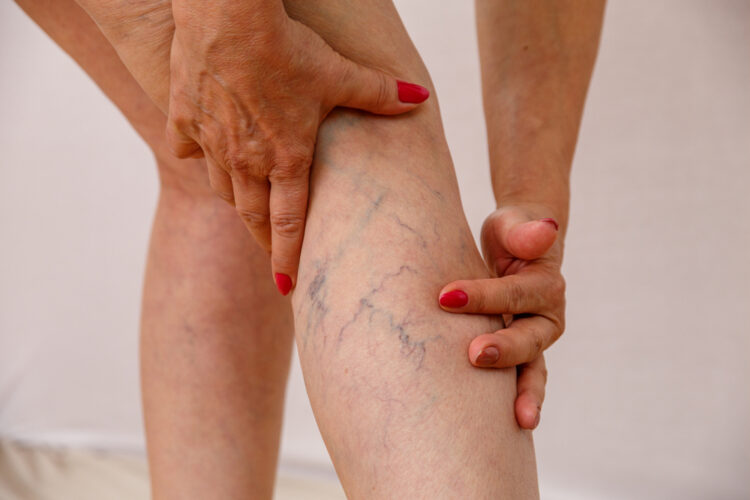
Can Varicose Veins Cause Leg Cramps?
Varicose veins come with a slew of symptoms that can be mildly annoying or downright disruptive to everyday life. Many people with vein disease complain of discomfort in their lower limbs, but do varicose veins cause leg cramps? Let’s explore the relationship between varicose veins and leg cramps and, most importantly, what you can do […]
Read more »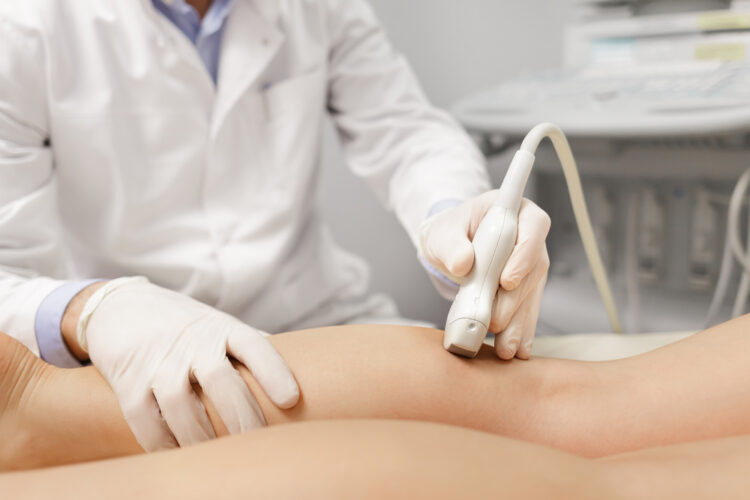
How Much Does Vein Treatment Cost?
At Empire Vein & Vascular Specialists, we understand that your needs and goals for treating your varicose or spider veins are as individual as you are. We create individualized treatment plans by matching your desires for how you want to look and feel with the most effective treatments for your individual needs. The cost of […]
Read more »What is Peripheral Artery Disease
Peripheral artery disease, or PAD, is a common, progressive condition in older adults in which blood flow in the arteries of the legs becomes increasingly restricted. If left undiagnosed and untreated, PAD can lead to serious complications may range from cramping and pain in the legs when walking to non-healing wounds and even amputation. In […]
Read more »What You Need To Know About Vein Valves
What are Vein Valves? Interspersed throughout your veins are small crescent-shaped flaps of tissue, known as valves, that help prevent a backflow of blood. These valves project from the innermost layer of the vein wall to the center of the vein and are angled towards the heart in the direction of venous blood flow. Lacking […]
Read more »Aortoiliac Occlusive Disease: Causes and Treatments
Aortoiliac occlusive disease (AIOD) refers to the blockage of the aorta or the iliac arteries. The aorta divides into branches called around the level of the navel to supply blood to the legs and the pelvic organs. This blockage typically occurs due to a buildup of plaque within the walls of the blood vessels. Patients […]
Read more »Aortic Dissection: Causes And Treatments
Aortic dissection occurs when the blood enters the arterial wall between the inner and middle layers of the aorta. This condition may occur when the inner layer of the aorta tears, allowing blood to flow from the main area of the artery into the wall. This risk is that the aortic dissection could channel blood […]
Read more »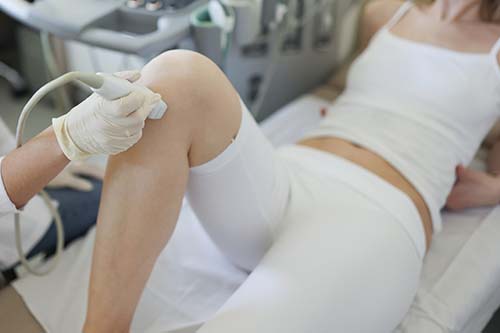
What a Leg Ultrasound Can Reveal About Your Varicose Veins
Ultrasound is one of the gold standard methods for evaluating varicose veins. An ultrasound study produces a comprehensive map of the large and small veins, branching veins, and interconnecting veins of your legs. Ultrasound is often performed as a first step in evaluating varicose veins and also provides valuable follow-up information to monitor the healing […]
Read more »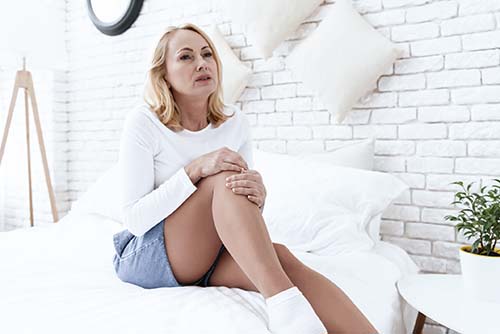
Why Do My Legs Itch, Burn or Feel Heavy? Symptoms of Varicose and Spider Veins, and Their Causes
Symptoms of varicose veins and spider veins can range from barely noticeable to incapacitating and may include sensations such as pressure, heaviness, fatigue, stiffness, aching, and itching. These symptoms can wax and wane depending on various factors and can vary from person to person. Varicose vein and spider vein symptoms can also be confused with […]
Read more »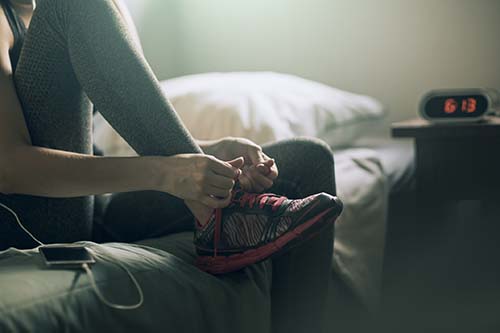
8 Tips to Stay Active When Working From Home for Vein Health
During the pandemic, many employers began offering their employees the option to work from home. This arrangement has worked out well and workers are reporting that they’re happier and more productive than before. However, working from home may also include a loss of healthy habits, like working out at the gym on the way to […]
Read more »How to Have Healthy Veins with These 6 Tips
Whether you have varicose veins currently or if you have some of the risk factors and want to minimize your risks and potential complications, there are safe and effective ways to improve your vein health. Following are simple lifestyle habits proven to improve vein health and reduce symptoms of varicose veins. Eat Lots of Fiber […]
Read more »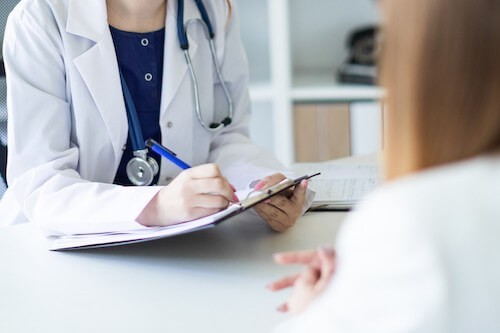
The Risk of Blood Clots from Varicose Veins
The tissues of the human body are nourished through a consistent and healthy flow of blood from head to toe. This is a delicate system that functions effectively for most people. However, disruptions in blood flow have the potential to interrupt normal activities, cause pain, or create critical health issues. Blood clots are widely recognized […]
Read more »Causes and Treatments of Legs Swelling
Leg Swelling Related to Inflammation Swelling in the legs due to inflammation can be caused by a number of underlying health conditions. Normally the endothelial surface is smooth and allows the blood to flow freely. However, when there is increased pressure in the veins, such as from faulty valves or activities that involve prolonged standing […]
Read more »Teachers and Varicose Veins: 6 Things Teachers Can Do to Improve Leg and Vein Health
While genetics play a big role in determining who gets varicose veins and who doesn’t, factors such as your occupation, lifestyle habits, even your diet also enter into the equation. Occupations that involve a lot of standing are known to increase risk and teaching falls squarely in that category. Varicose veins are consistently at the […]
Read more »